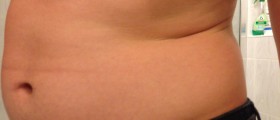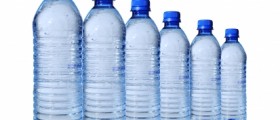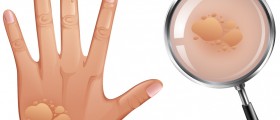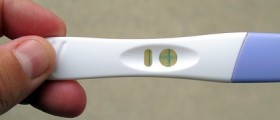
Water retention is a medical condition that involves water leaks from the blood into the body tissues. Medically, this condition is also known es edema. Normally the excess fluid is drained from the body through the lymphatic system but when the various circumstances affect this process, the water is retained in the body tissues, causing the swelling or edema. The edema can be generalized, affecting the whole body, or localized, affecting only the particular regions of the body. The most frequently affected areas in the body are feet and legs, but edema also occurs in hands, arms, abdominal cavityand around the lungs. The condition of water retention in the lungs is known as pulmonary edema.
Symptoms of water retention
Signs and symptoms of water retention largely depend on the affected area. The most prominent symptom of water retention is swelling of the skin. The skin appears stretched and shiny and pressing on the swollen area leaves a dimple in the skin. This symptom is most obvious in lower legs, and it occurs as a result of gravity, after long periods of standing.
If the water retention affects the abdominal area, it manifests as bloated or enlarged abdomen. Pulmonary edema, on the other hand, is characterized by breathing difficulties.
Other common symptoms of water retention include rapid weight gain and frequent fluctuations in the body weight.Causes of water retention
Many different factors may contribute to water retention in the body. Most commonly, edema occurs because of high salt intake, as a reaction to hot weather, gravity, nutritional deficiencies, burns as well as sunburns and as a side effect of certain drugs. In women, the use of oral contraceptives, pregnancy, the menstrual cycle and menopause are also known causes of water retention.
Water retention may sometimes occur as a side-effect of weight gain. Weight gain is normally associated with higher intake of foods, and since the sodium is present in all foods, high food intake means high sodium intake.
In menopausal women, water retention is caused by fluctuating hormonal levels, hormonal imbalance and a loss of progesterone.
Water retention is sometimes caused by other medical conditions such as hypertension, thyroid problems, kidney diseases and infections.
Other causes include warmer temperatures that can hinder the body's efficiency of removing fluid, postpartum depression associated with severe change in hormonal levels or seasonal allergies. People who are prone to allergies often experience fluid retention around the eyes and all over the face.

















Your thoughts on this
Loading...